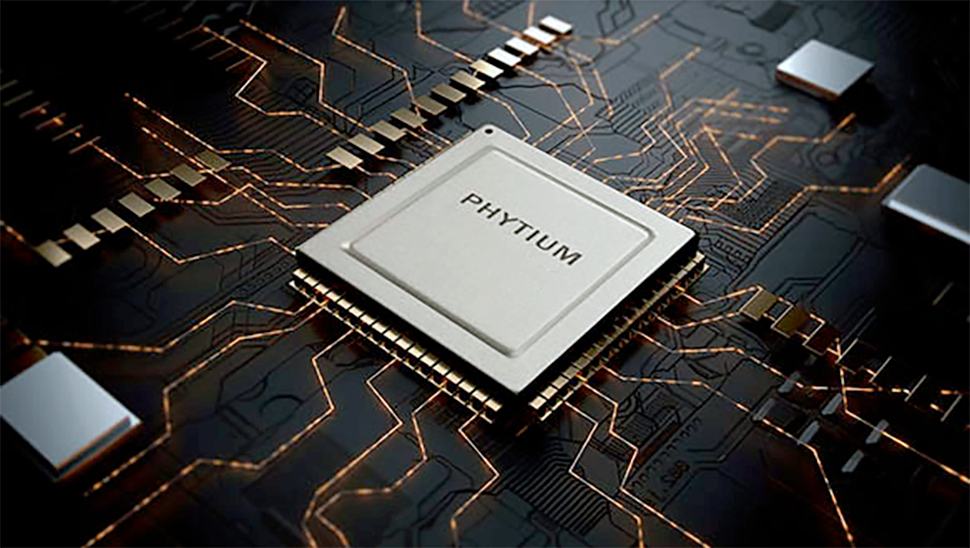China's Phytium Launches 64-Core Server CPUs, Despite Spot on US Entity List
Phytium announces new CPUs for the first time in two years.

Phytium has been quiet for well over two years after the U.S. government blacklisted the company in April 2021. Yet despite sanctions, the company is still in business, and this week it introduced its first 64-core Feiteng Tengyun S2500 processor for datacenter applications at the Global Memory Industry Innovation Forum 2023.
Phytium's Feiteng Tengyun S2500 is a 64-core processor based on the company's proprietary (and rather outdate) FTC661 cores that rely on the Armv8 instruction set architecture. The processor is specifically designed for cloud and high-performance computing applications and is essentially a superset of the company's FT-2000+/64 processor from 2021. The Feiteng S2500 adds a large-capacity shared L3 cache, four direct connection ports boasting a total bandwidth of 800Gbps, revamped security capabilities for cloud servers, and a more reliable memory subsystem.
This is the first new CPU that Phytium has introduced in a couple of years, though it is unclear where the company makes it as it now does not have access to production capacity of the world's largest foundries. In fact, even if Phytium decided to turn to China-based SMIC, the latter should obtain a special export license from the U.S. government to serve this CPU developer as it uses American technologies in chip production.
In addition to the Feiteng Tengyun S2500, Phytium Technology demonstrated already existing Feiteng Tengrui D2000 for desktops and laptops, and Feiteng Tenglong E2000 for embedded applications.
While the future of Phytium's CPUs remains to be seen, given the fact that it had to redesign its whole roadmap after getting onto the U.S. government's Entity List in 2021, it is evident that the company has not stopped developing hardware. Earlier this year it even transpired that Huawei had kicked off a project to unify hardware and software ecosystems of its own Kunpeng processors and Phytium's Feiteng CPUs.
Get Tom's Hardware's best news and in-depth reviews, straight to your inbox.

Anton Shilov is a contributing writer at Tom’s Hardware. Over the past couple of decades, he has covered everything from CPUs and GPUs to supercomputers and from modern process technologies and latest fab tools to high-tech industry trends.
-
RedBear87 "In fact, even if Phytium decided to turn to China-based SMIC, the latter should obtain a special export license from the U.S. government to serve this CPU developer as it uses American technologies in chip production."Reply
Except that SMIC has been already subjected to sanctions so vast and wide in scope that they have little-to-no incentive in collaborating with the enforcement of similar measures. This is the limit of sanctions that no one in the US appears to be willing to notice, when you've sanctioned someone too much, they have no incentive to collaborate with you any more. It doesn't matter whether it's a North Korean 152mm shell or SMIC's semi-modern quasi-7nm semiconductors.